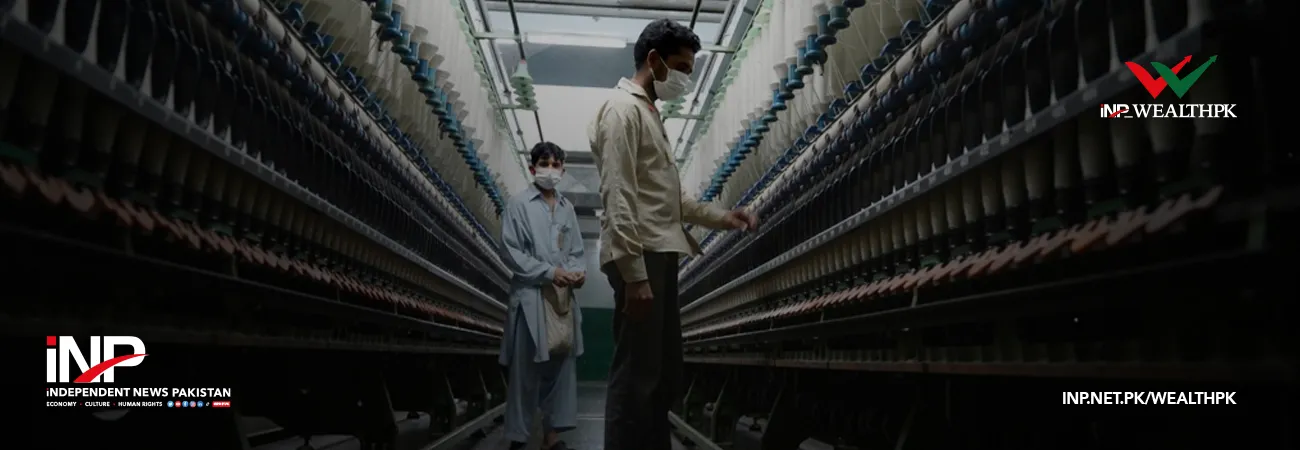INP-WealthPk
Faiza Tehseen

Ozone layer depletion is a serious global environmental challenge, creating a multitude of socioeconomic and health problems in Pakistan. To overcome its detrimental impacts, there is a dire need for launching a robust public awareness campaign. Muhammad Saleem Shaikh, spokesperson for the Ministry of Climate Change and Environmental Coordination, expressed these views while talking to WealthPK. "Raising public awareness about the importance of protecting the ozone layer and its negative impacts on health and environment will encourage the industrial sector and people to use ozone-friendly products. It will also go a long way towards decreasing the impacts of climate change." Shaikh, who is also a climate change education specialist, shared that ozone layer depletion had emerged as a critical environmental issue, resulting from the release of certain human-made chemicals, primarily chlorofluorocarbons (CFCs) and halons. However, tackling this challenge requires a multi-faceted approach, particularly raising public awareness.
He said, "Efforts to restore the ozone layer over the past few decades are at risk of being reversed due to the harmful chemical emissions and unsustainable practices worldwide, compromising the earth's defence against the harmful solar ultraviolet radiation". In the stratosphere, about 15-35 kilometres above the earth's surface, the ozone layer protects the earth from the sun's high-energy UV radiation, particularly UV-B and UV-C rays, and keeps the earth's temperature moderate, and the cycle of different eco-systems regular. The implications of ozone layer depletion are severe and significantly harm different economic sectors. It badly affects agricultural productivity and the quality of staple foods – rice, wheat, and soybean. It also damages the early developmental stages of aquatic animals, including shrimp, fish, and crabs. "The healthcare cost also increases due to the ozone holes, as they allow the ultraviolet (UV) radiation to reach the earth and affect natural ecosystems and humans. It causes skin cancer, impaired immune system, cataracts and damages the respiratory tract tissues," he explained.
Shedding light on climate change and the ministrys initiatives being taken to protect the ozone layer, the media spokesperson said with the collaboration of national and international stakeholders, the ministry had initiated multiple programmes to phase out the ozone-depleting substances (ODS). He said, "As a signatory to the Montreal Protocol, Pakistan has successfully eliminated the consumption of CFCs and is continuously working to phase out hydrochlorofluorocarbons (HCFCs). It helped reduce the greenhouse gas emissions and recovery of the ozone layer". For over a decade, the ministry has taken various steps to protect the ozone layer and promote sustainable development. These steps have been appreciated and recognised at various international forums, such as the HCFC Phase-out Management Plan (HPMP). However, to fulfil the said aims, community-based coordination is crucial, and the present government is diligently working on it, the senior ministry official added.
Talking to WealthPK about the importance of a public awareness campaign to protect the ozone layer, Muhammad Saleh Mangrio, Executive Director of Centre for Rural Change, Sindh, said Pakistan was already facing severe environmental challenges like land degradation, water pollution, and deforestation. Ozone layer depletion adds to the existing environmental issues. Muhammad Saleh, who is also a social and rural development expert, said, "To avert this crisis, an awareness campaign is crucial, which will help educate people to promote eco-friendly industrial practices and safeguard the environment for the coming generations. The government should focus on this issue seriously to make Pakistan more climate-resilient.
Credit: INP-WealthPk













